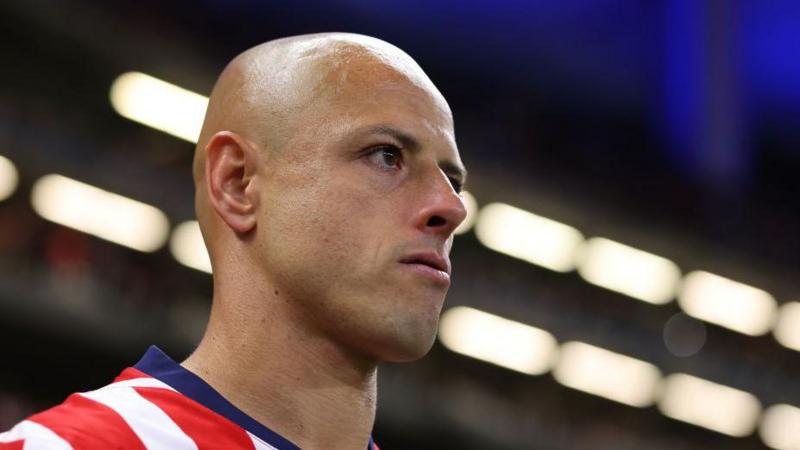Ex-Man Utd Star Hernandez Issues Apology for Sexist Remarks




Javier Hernandez, the celebrated striker for Mexico’s national soccer team, has found himself at the center of controversy following remarks that have been widely criticized as sexist. The Mexican Football Federation didn’t hesitate to respond, and Hernandez was promptly fined and issued a stern warning regarding his behavior. This incident marks a rare sour note in the illustrious career of one who is affectionately known as "Chicharito," a nickname that means "little pea," given to him due to his small stature and green eyes.
In a recent statement, Chicharito expressed remorse for his comments, recognizing them as inappropriate and misaligned with the values he wishes to embody. "It was a moment of frustration that led me to say things I truly regret," Hernandez explained. "I understand the impact my words have, especially as someone who has the privilege of being heard by millions, and I am deeply sorry to anyone who was offended."
The swift repercussions faced by Hernandez underline soccer's growing intolerance for misconduct, particularly when it comes to issues of sexism and misogyny. In an era where the sport is gaining traction among female athletes and fans alike, maintaining an environment of respect and equality is paramount. The Mexican Football Federation, along with other sports bodies worldwide, has increasingly been vigilant about penalizing behavior that undermines this ethos.
Hernandez’s professional journey began in Guadalajara, before he vaulted to international stardom with Manchester United, and subsequently, Real Madrid. His knack for timely and pivotal goals, coupled with his exuberant celebrations, has endeared him to fans globally. As the all-time leading scorer for the Mexican national team, Hernandez's career has been a source of inspiration for many, which makes his recent lapse all the more disappointing to his admirers.
The impact of his words is substantial, illustrating the powerful role athletes play as role models. It’s a stark reminder that their voices can propagate messages that either uplift or denigrate, influencing societal norms and expectations around gender roles and behaviors. In acknowledging his mistake, Hernandez has the opportunity to champion positive change, demonstrating that personal growth and accountability are possible, even under the harsh scrutiny faced by public figures.
This incident also casts a spotlight on the broader culture within sports that sometimes perpetuates sexism. Despite progress in some areas, there are lingering attitudes and beliefs that continue to marginalized female athletes and fans. Incidents like these serve as a catalyst for dialogue and change regarding how women are treated and represented in the world of sports.
Going forward, Hernandez has pledged to participate in sensitivity training, as recommended by the Mexican Football Federation. Such programs are becoming more common as organizations seek to educate their athletes and staff on gender issues, aiming to foster an inclusive and respectful sporting environment. This proactive approach not only benefits those directly involved but also sets a precedent for how similar situations could be handled in the future, emphasizing education over punishment alone.
For Chicharito, this moment could redefine a segment of his legacy—one that he hopes will continue to inspire but also teach important lessons about respect and equality. As he steps back onto the pitch, the hope among his fans and supporters is that he will not only lead by example in his play but also in his conduct.
The road to redemption is often not swift nor easy, but it is a path paved with the potential for significant personal and collective advancement. For Javier Hernandez, and perhaps the sporting community at large, it represents an opportunity to move forward with a renewed commitment to integrity, both in sport and society.